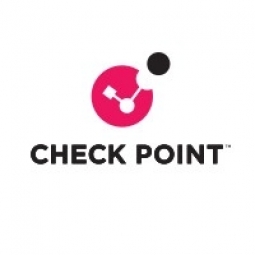Download PDF
IFAW Enhances Security with Check Point Endpoint Security
Technology Category
- Cybersecurity & Privacy - Endpoint Security
- Cybersecurity & Privacy - Network Security
Applicable Industries
- National Security & Defense
- Telecommunications
Use Cases
- Remote Control
- Tamper Detection
Services
- Cybersecurity Services
The Challenge
The International Fund for Animal Welfare (IFAW) had been a Check Point customer for about eight years and was familiar with the quality and superiority of Check Point security solutions. However, they faced a challenge when users began experiencing problems with secure remote access. With approximately 70 percent of employees working outside the organization’s headquarters, IFAW needed a secure remote access solution that could guarantee more internal security and controls, especially for mobile users. The majority of mobile users were migrating away from using IFAW global dial-up access to the available broadband access options in hotels and conference rooms. This migration led to issues such as worm infestations, an increase in malware, and users returning to the office with unauthorized software installed on their devices. IFAW was concerned that the remote workforce, who had access to confidential internal systems while on the road, would use a VPN tunnel to unknowingly inject something inappropriate inside network headquarters.
About The Customer
The International Fund for Animal Welfare (IFAW) began four decades ago and has grown to become the world’s leading international animal welfare organization. With a support base of over two million contributors worldwide, IFAW connects government leaders, communities, and similar organizations together to accomplish real solutions for animal safety and environmental conservation. With offices on every continent except for Antarctica, IFAW has a broad base of support, which includes legal and political experts as well as internationally recognized scientists, to tackle global preservation and animal welfare challenges.
The Solution
IFAW found its solution in Check Point Endpoint Security, the first single agent for total endpoint security that combines the highest-rated firewall, network access control (NAC), program control, antivirus, anti-spyware, data security, and remote access. While considering product options, IFAW relied heavily on industry trade publications like Network World, Secure Computing, and others to provide a sounding board for potential solutions. Check Point Endpoint Security is unique in that it includes both data security for preventing data loss and theft and a VPN client for secure remote access communications. A single management console enables administrators to view and modify endpoint security policy with ease and assurance. And Check Point Endpoint Security is unified with the Check Point unified security architecture, enabling monitoring, analysis, and reporting of endpoint security logs and events from SmartCenter, Provider-1, and Eventia management systems.
Operational Impact
Quantitative Benefit
Related Case Studies.

Case Study
Vodafone Hosted On AWS
Vodafone found that traffic for the applications peak during the four-month period when the international cricket season is at its height in Australia. During the 2011/2012 cricket season, 700,000 consumers downloaded the Cricket Live Australia application. Vodafone needed to be able to meet customer demand, but didn’t want to invest in additional resources that would be underutilized during cricket’s off-season.

Case Study
SKT, Construction of Smart Office Environment
SK T-Tower is the headquarters of SK Telecom. Inside the building, different types of mobile devices, such as laptops, smartphones and tablets, are in use, and with the increase in WLAN traffic and the use of quality multimedia data, the volume of wireless data sees an explosive growth. Users want limitless Internet access in various places in addition to designated areas.

Case Study
Data Capture for Afghanistan Forces
Electronic equipments on the field of Afghanistan provided information on the status of the vehicle and to identify potential threats surrounding it to the British Force. The monitoring and interpretation of this data requires robust and sophisticated digitization for data capture and communication.








